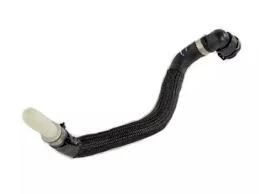Exploring the Uses and Benefits of Rubber Oil in Industry and Daily Life
Ное . 19, 2024 00:47 Back to list
Exploring the Uses and Benefits of Rubber Oil in Industry and Daily Life
The Importance of Rubber Oil Lines in Modern Industries
In today's rapidly evolving industrial landscape, the role of rubber oil lines cannot be overstated. These components serve critical functions across various sectors, from automotive to manufacturing, ensuring the efficient and safe transfer of fluids. Understanding the significance of rubber oil lines highlights their contributions to operational efficiency, safety, and maintenance.
Rubber oil lines are primarily used to transport oil, fuel, and other fluids. They are made from high-quality rubber compounds that are designed to withstand high pressures and temperatures while remaining flexible. This flexibility is crucial, as machinery often requires components that can bend and twist during operation without breaking or leaking. Rubber oil lines are engineered to provide durability and resilience, making them suitable for harsh environments and demanding applications.
One of the key advantages of rubber oil lines is their resistance to various chemicals. In industries where oils and fuels are commonplace, it is essential that the transportation lines maintain their integrity and do not deteriorate when exposed to acidic or corrosive substances. High-quality rubber compounds are formulated to resist these challenges, ensuring that the oil lines can operate efficiently over extended periods.
rubber oil line

In the automotive sector, rubber oil lines are particularly vital
. They are integral to the vehicle's engine system, transporting oil that lubricates the engine components, ensuring smooth operation and preventing excessive wear. Rubber oil lines must be reliable, as a failure can result in significant damage to the engine and costly repairs. Routine checks and maintenance of these lines are critical, and any signs of wear or leaks should be addressed immediately to prevent accidents and downtime.Moreover, the integrity of rubber oil lines plays a crucial role in environmental safety. A leak in an oil line can lead to spills that not only damage equipment but also pose severe risks to the environment. Industries are increasingly focusing on sustainable practices, and maintaining efficient rubber oil lines is part of this effort. By ensuring that these lines are in good condition and regularly inspected, companies can mitigate their environmental impact and comply with stringent regulations.
In manufacturing and heavy industries, rubber oil lines are essential for the operations of hydraulic systems. These systems rely on the precise transport of fluids to control machinery and tools. The reliability of rubber oil lines is paramount in these settings, as any failure can lead to production delays, increased costs, and safety hazards for workers. Therefore, investing in high-quality rubber oil lines and implementing regular maintenance protocols are crucial steps for businesses to ensure productivity and worker safety.
In conclusion, rubber oil lines are indispensable components in various industries, providing safe, efficient, and reliable fluid transport. Their durability, chemical resistance, and flexibility make them ideal for demanding applications. As industries move towards more sustainable practices, maintaining the integrity of these lines becomes not only a matter of operational efficiency but also an environmental responsibility. For industry leaders, understanding and prioritizing the quality of rubber oil lines will be a crucial factor in promoting safety, efficiency, and environmental stewardship in their operations.
